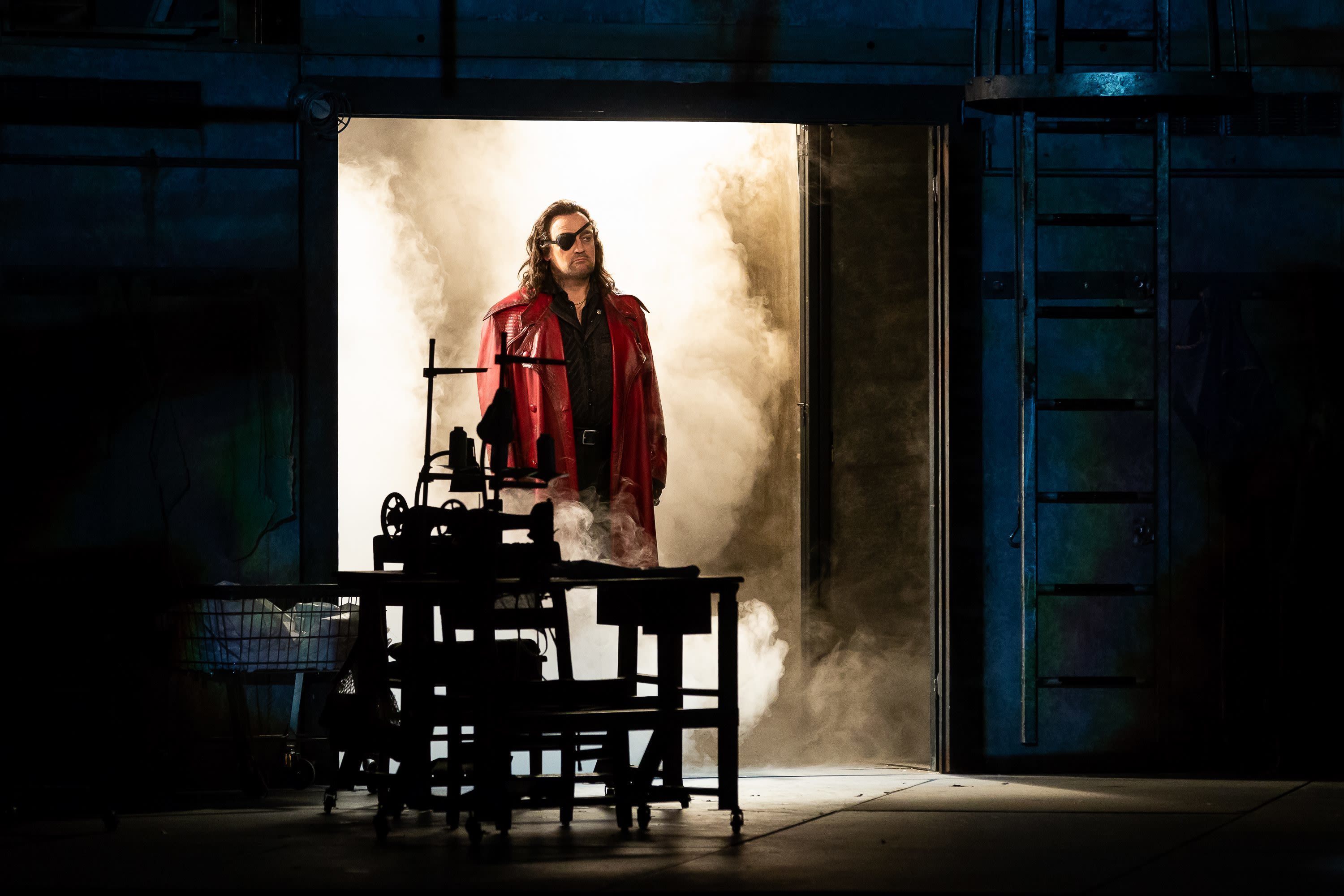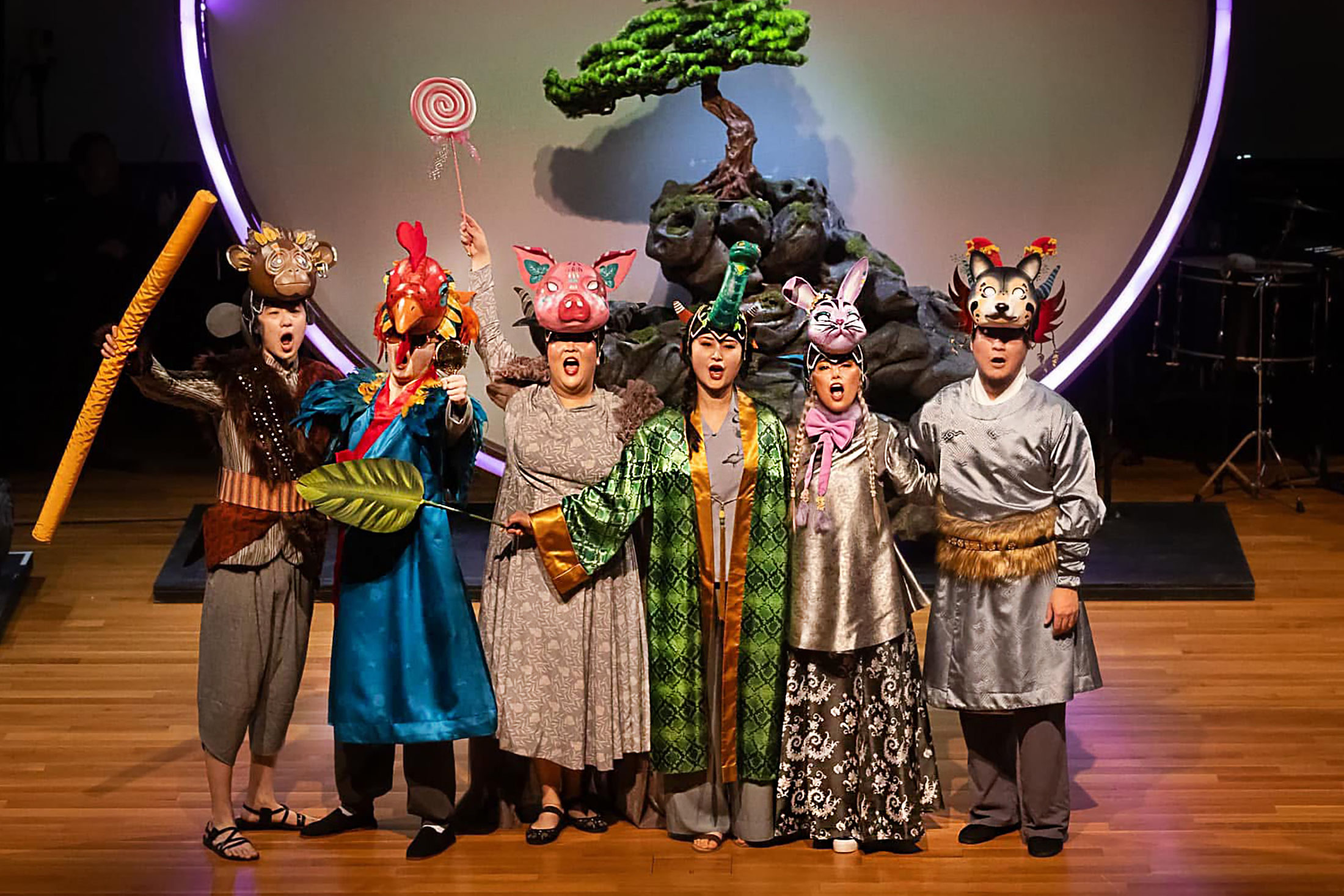HGO's Aida Brings a Silky Spectacle to Houston
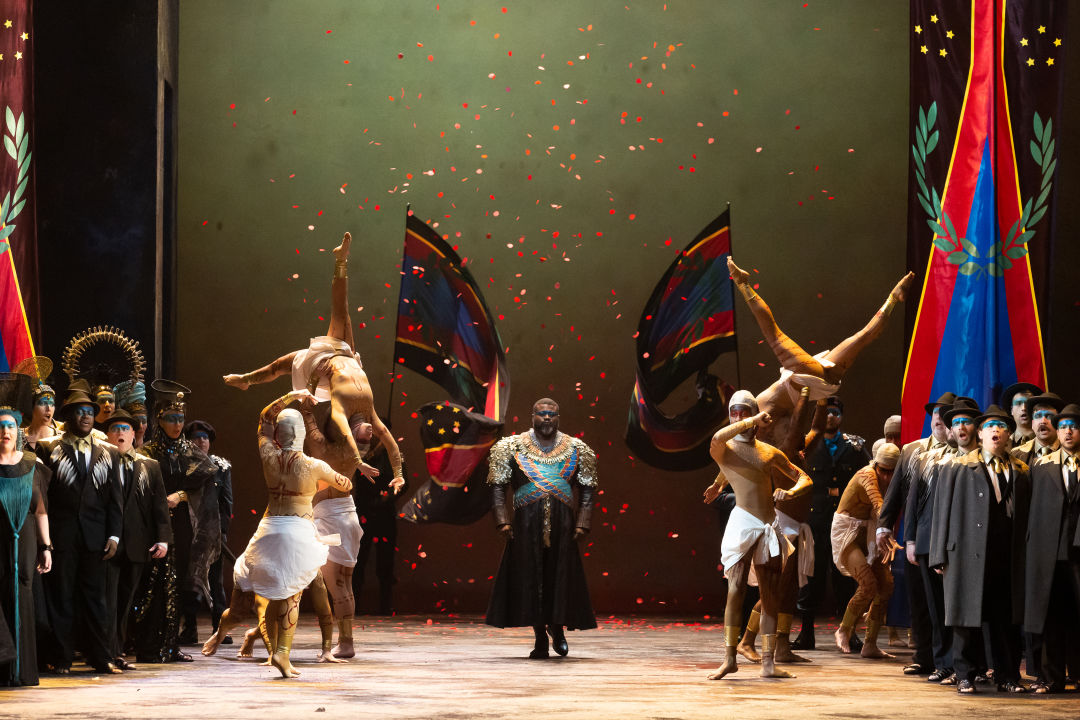
(center) Russell Thomas makes his HGO debut in Aida as Radames
Image: Lynn Lane
Giuseppi Verdi’s Aida returns to the Wortham Center in a triumphant production that puts the “grand” in Houston Grand Opera. Among the most popular operas of all time, Aida showcases the biggest and best of what the genre has to offer: larger-than-life stagecraft paired with powerhouse performances that will satisfy newcomers and connoisseurs alike.
Commissioned by the Ottoman viceroy of Egypt in 1870, Aida tells a fictional story suggested to Verdi by leading Egyptologist Auguste Mariette: Egypt and Ethiopia are at war. Aida (soprano Tamara Wilson), princess of Ethiopia, is the captive slave of Amneris (soprano Melody Moore), princess of Egypt. Both Aida and Amneris are in love with Radames (tenor Russell Thomas), the young Egyptian warrior selected by the gods to lead the fight against the Ethiopians. Radames returns victorious from battle, bringing back several Ethiopian prisoners, including Aida’s father, King Amanasro (baritone Reginald Smith). Amanasro plans to escape and counterattack with Aida’s help, leaving Aida torn between her father and her lover.
Most of the opera’s grand sequences occur in its first half. Though a simple black curtain serves as the backdrop for the first scene, it is soon flung wide to reveal the full glory of this production. Tom Pye’s sets are simple, mostly gray stone in geometric shapes, but appropriately epic in scope, suggesting structures that reach above the top of the stage. Their bleakness accentuates Kevin Pollard’s colorful costumes. Pollard fittingly clothes the royals most elegantly, dressing Amneris in stunning white, golden, and sunshine yellow gowns, but he reserves the most breathtaking costume change for her attendants as they turn their magenta cloaks inside out to reveal a pure white interior early in the second act.
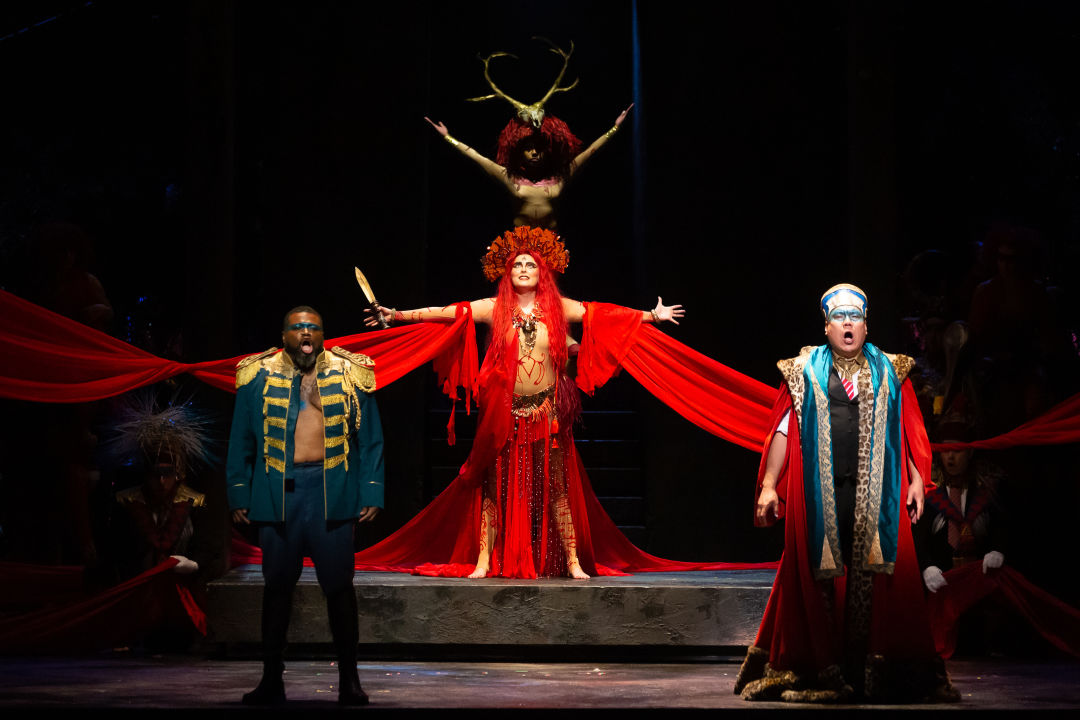
(From left) Russell Thomas, Dorothy Gal, and Peixin Chen.
Image: Lynn Lane
Contributing to the spectacle is Jorrell Lawyer-Jefferson’ dazzling choreography. In a particularly eye-popping scene, Radames seeks the blessing of the gods at the Temple of Vulcan. The prayer ritual begins as the Priestess emerges draped in red silks, surrounded by dancers writhing on the ground. As her prayer rises heavenward, the dancers rise too, some mounting the others’ shoulders to unfurl the Priestess’ silks until they stretch across the stage which simultaneously fills with additional dancers performing exquisite silk choreography by New York City-based puppeteer Basil Twist.
In his HGO debut, director Phelim McDermott effectively uses the curtain to balance scenes of epic scale (the production has 10 dancers and more than 70 singers in its chorus) with the opera’s more intimate moments. Early in the first act, as a crowd of Egyptians cheer on Radames as he prepares to leave for battle, Aida steps downstage away from the masses, the curtain closing behind her, leaving her alone to wrestle with her competing allegiances to her homeland and to her love. Aida’s solitary figure in front of the black curtain eliminates all distractions, foregrounding the emotional center of the opera’s conflict.
Soprano Tamara Wilson, an HGO Studio alumna, embodies the title role with warmth and skill. From the very first note, her powerful tone commands the stage, but it was her tender control in the third act’s “O patria mia” that exhibited her total mastery of her instrument. Wilson displays a tremendous range of color from crystalline delicacy to passionate warmth, often within a single phrase. She is well matched by tenor Russell Thomas as Radames, in his HGO and role debut, particularly in their fourth act duets. His voice rings strong and clear without ever becoming strident. His imposing, broad-shouldered stage presence further contributes to his convincing performance of the victorious officer.
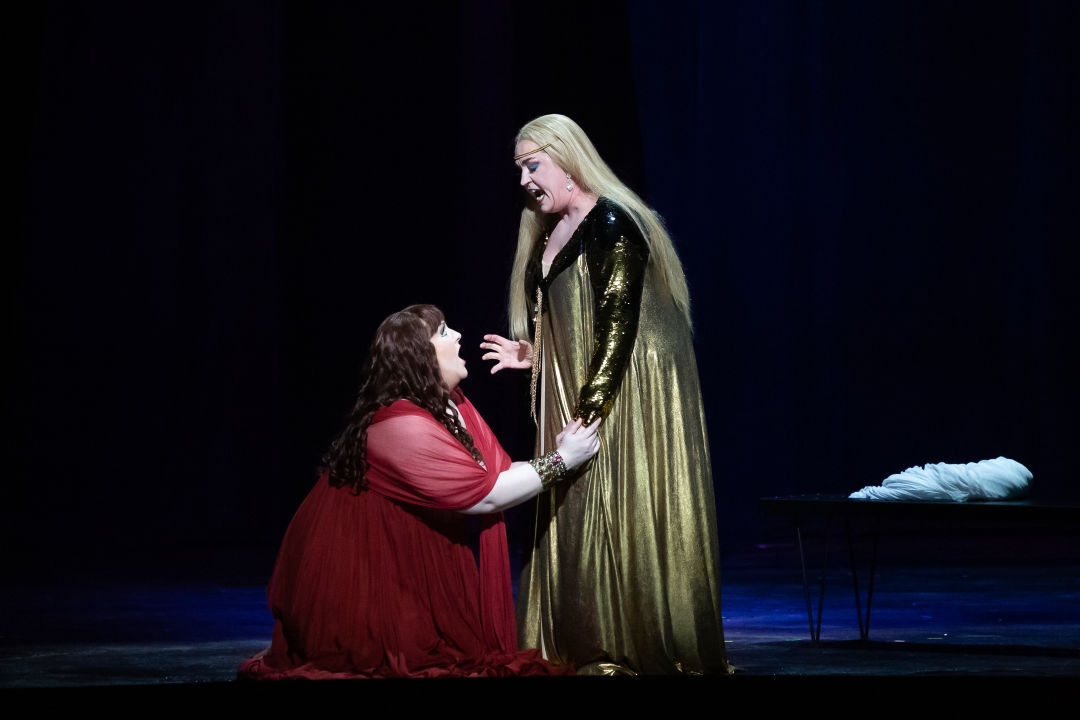
Tamara Wilson (left) and Melody Moore.
Image: Lynn Lane
Soprano Melody Moore, last seen at HGO as Senta in Wagner’s The Flying Dutchman, stands out as Amneris, exploring this traditionally mezzo-soprano role with considerable depth. In the beginning, her performance leans toward comedy as she tricks Aida into revealing her love for Radames, but after she exposes her rival, she drops the playfulness to reveal imperious cruelty, conveyed through her robust tone in its middle and lower registers. Her resurgence in the opera’s final act as an ostensibly sympathetic character is a curious story choice, but Moore, who alternates the role with mezzo-soprano Catherine Martin throughout the production’s run, makes the most of it, singing with full conviction of her love for Radames and grief over what has transpired.
Two HGO alumni round out the excellent cast: baritone Reginald Smith brings his golden tone to the role of Amanasro and bass Peixin Chen performs the Priest with appropriate majesty. The orchestra, under the direction of Patrick Summers, adds intensity and warmth in equal measure, despite some stray intonation troubles in the first violins. The exceptional woodwinds solos in the third act deserve special recognition.
Aida has something for everyone and is a great entry point for people who know little or nothing about opera. Amid the dazzling spectacle, it celebrates a union between two lovers whom the world would rather divide, a message still resonant today.
Thru Feb 16. Tickets from $25. Wortham Theater Center, 501 Texas Ave. 713-228-6737. More info and tickets at houstongrandopera.org

